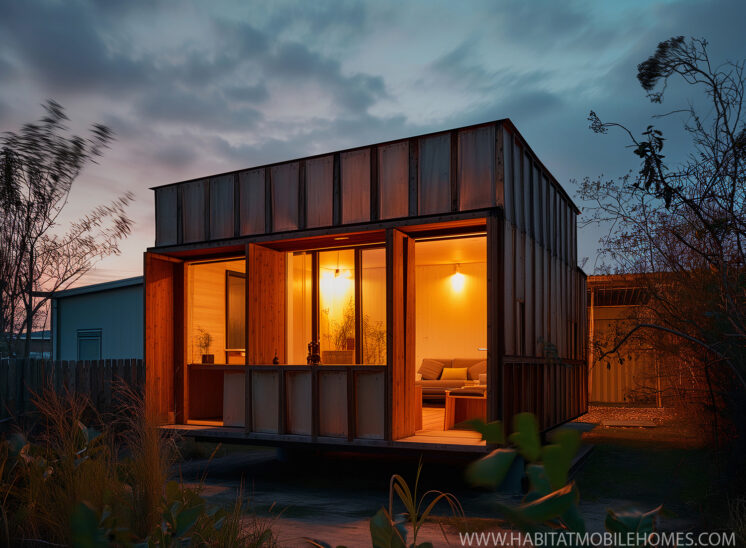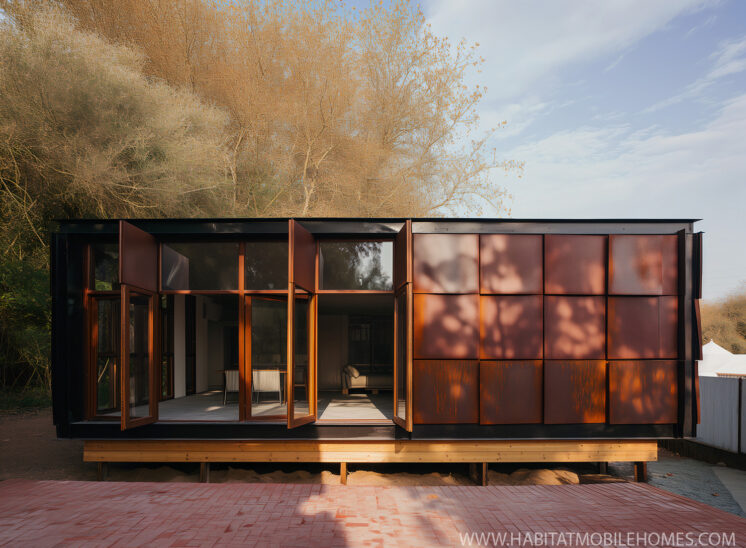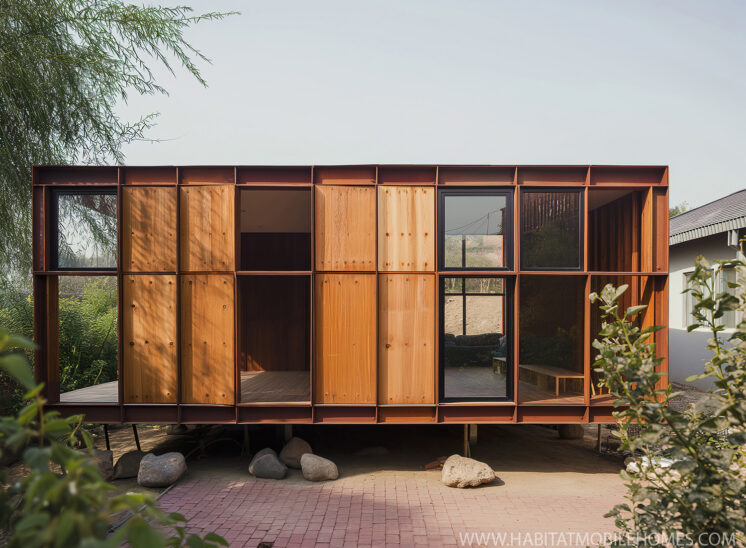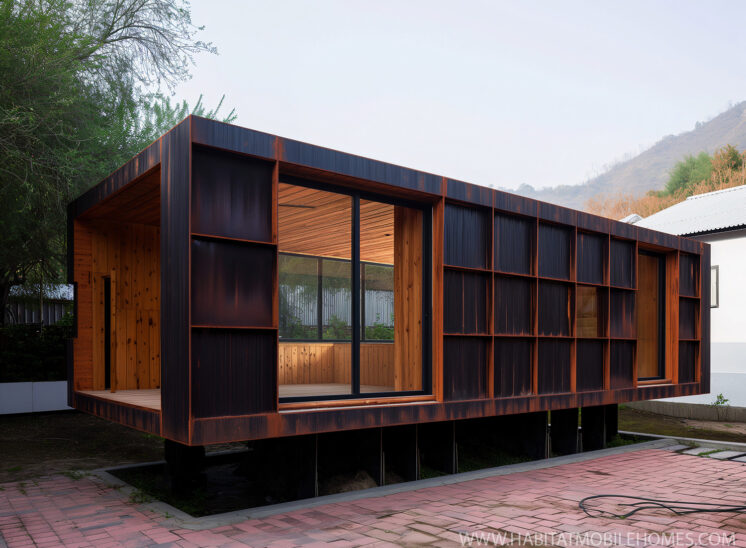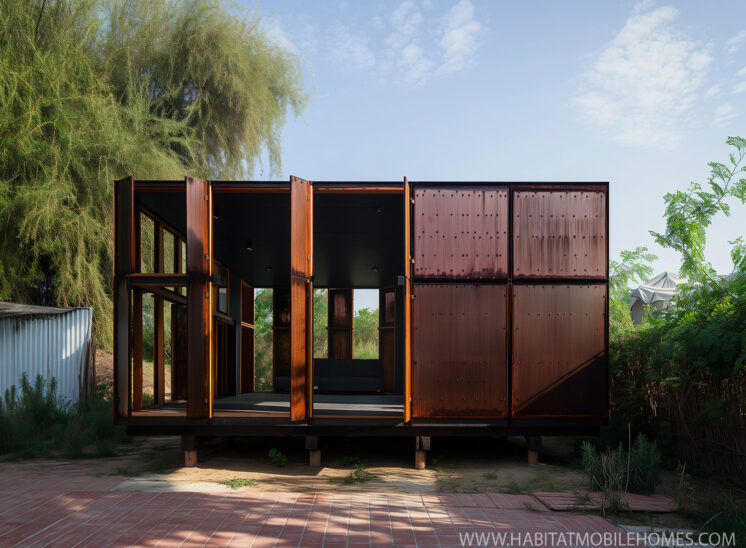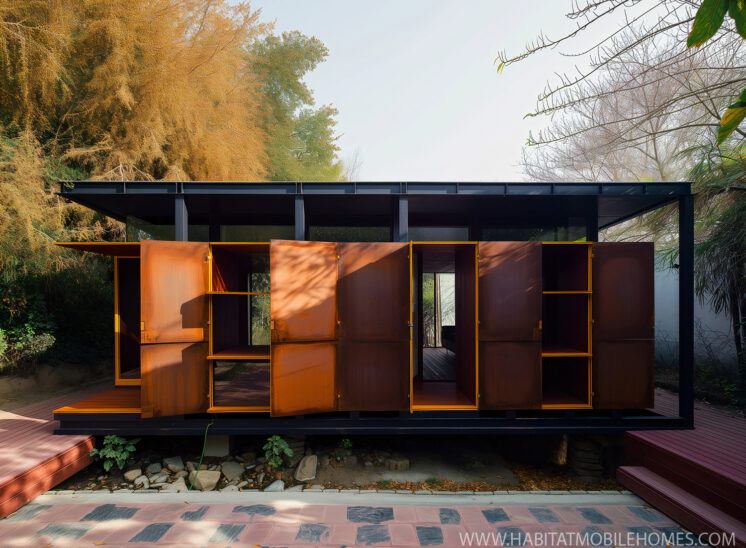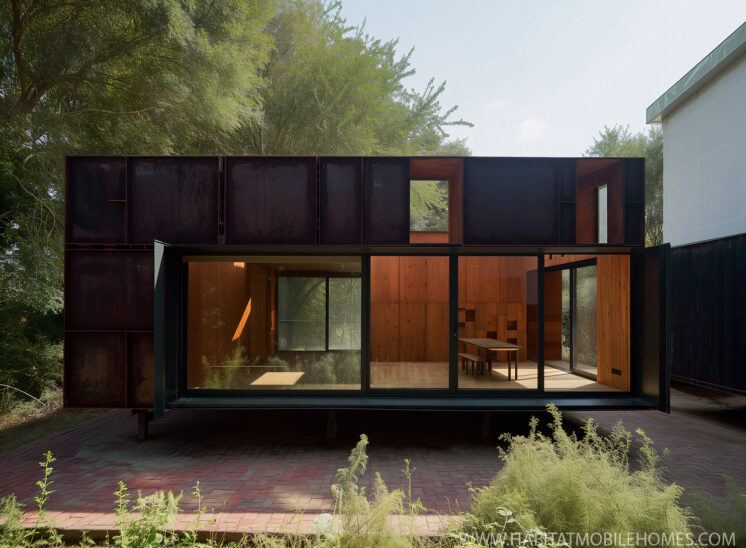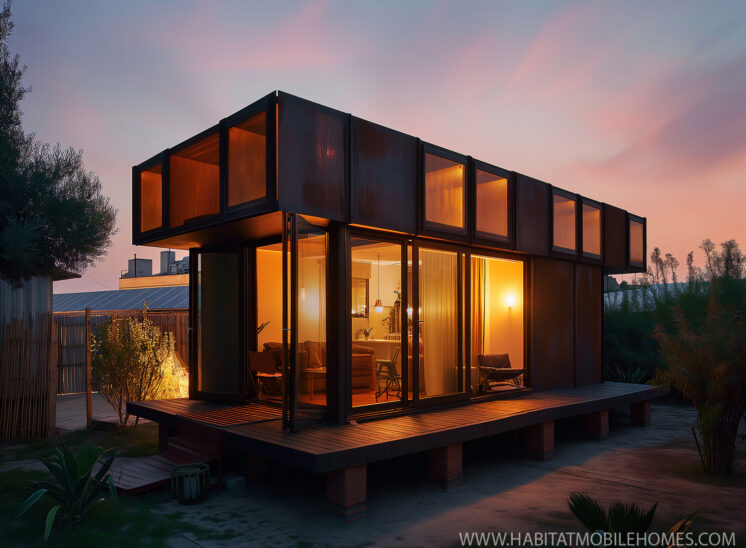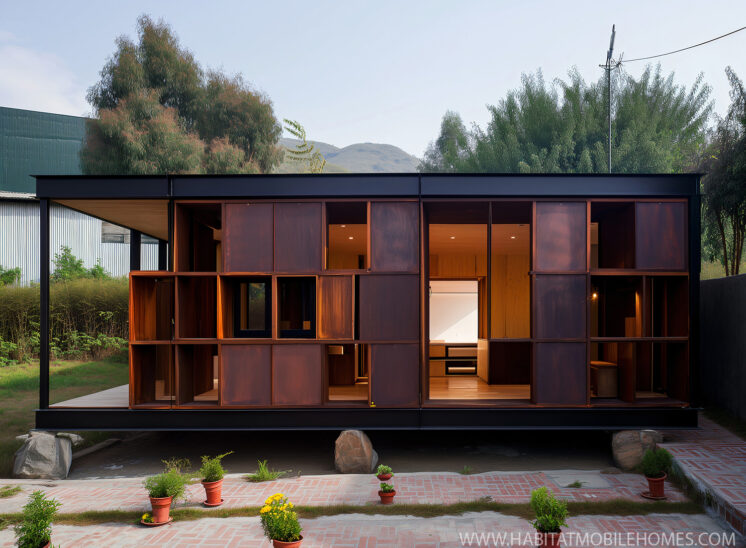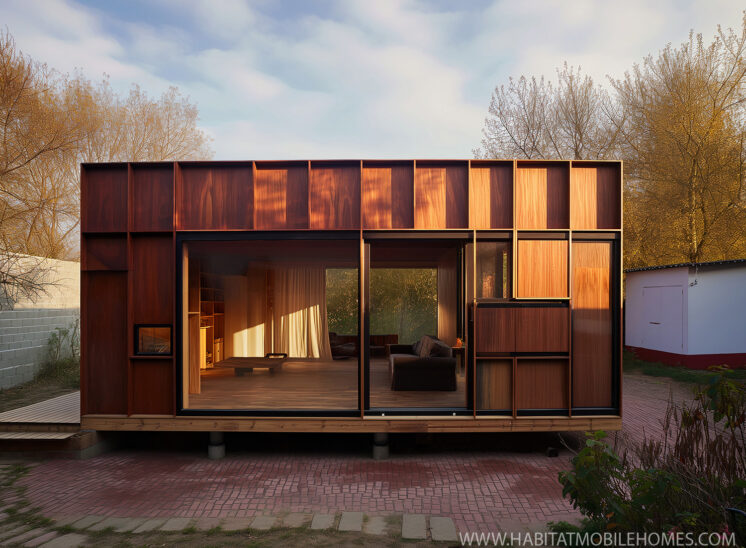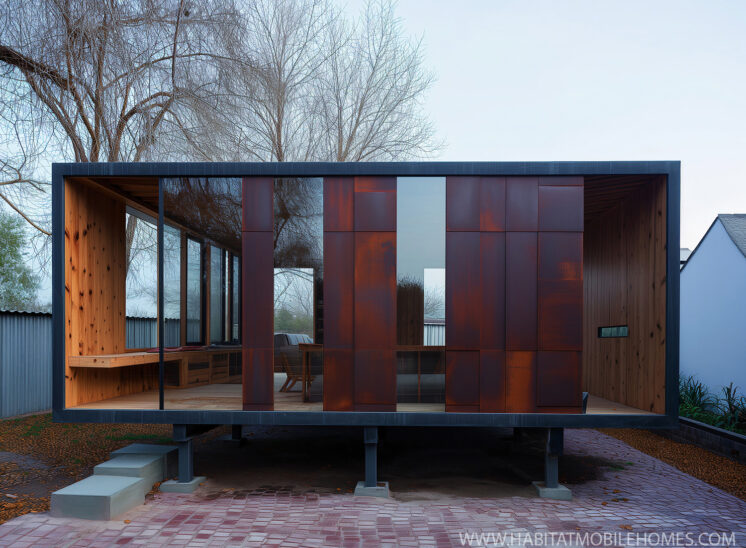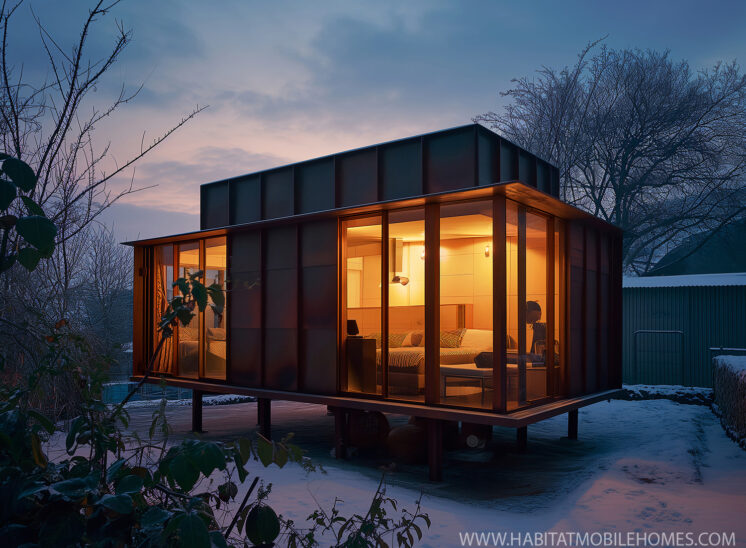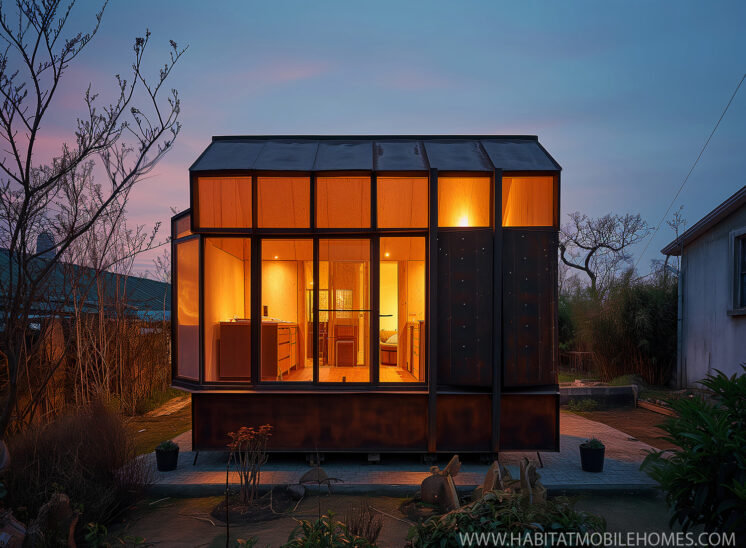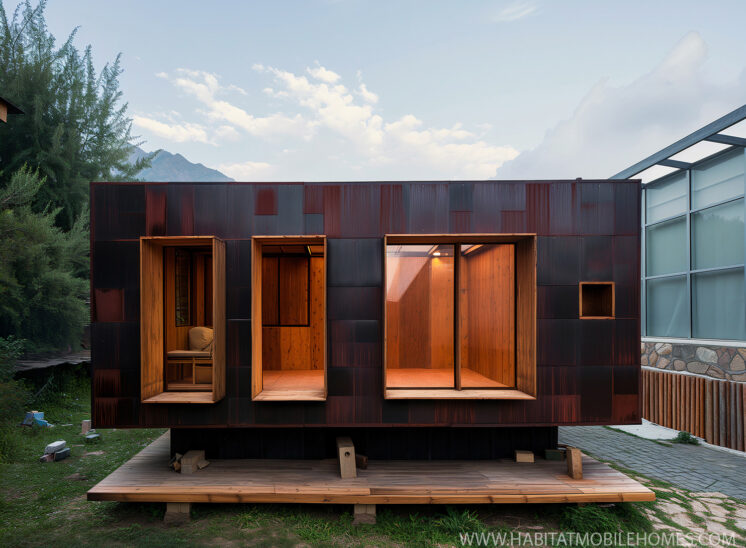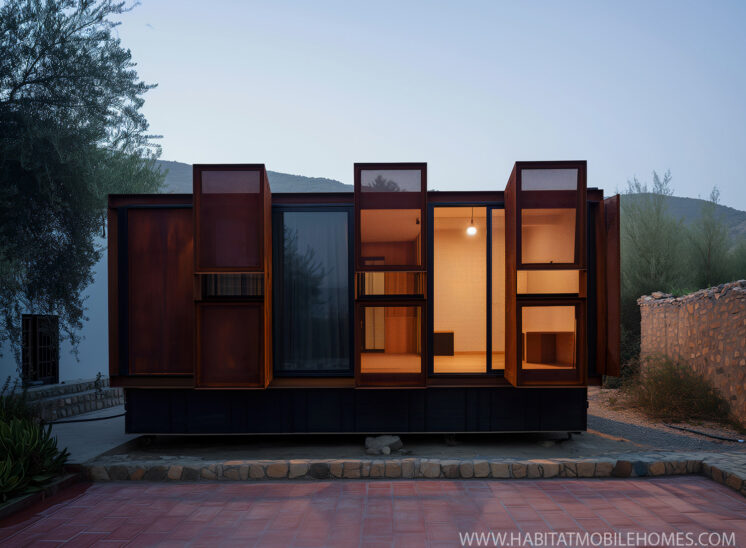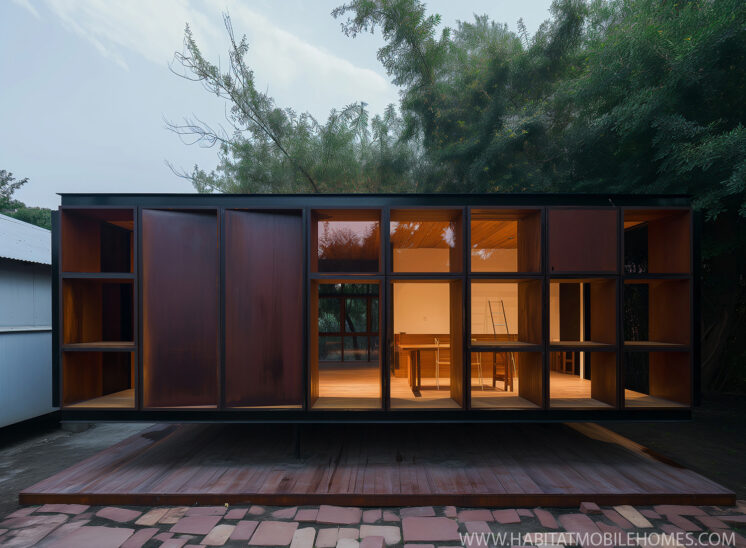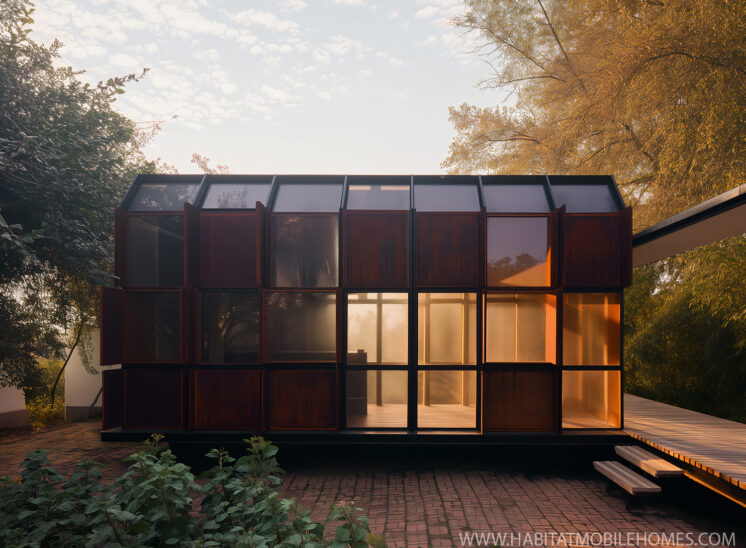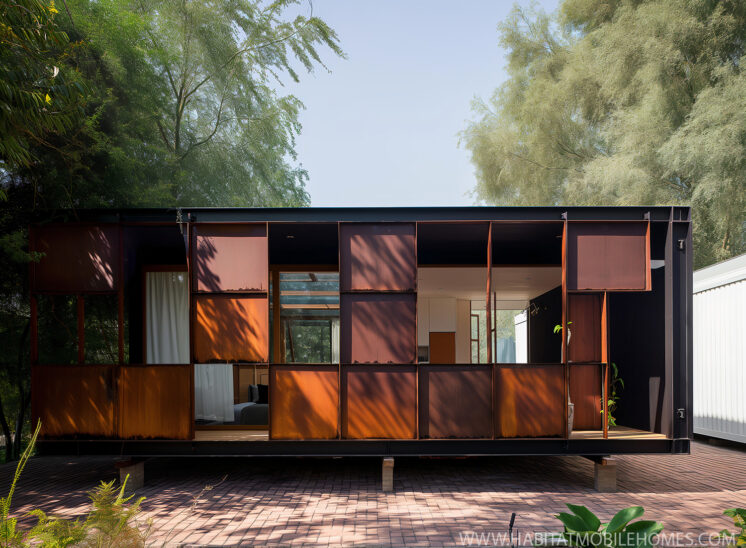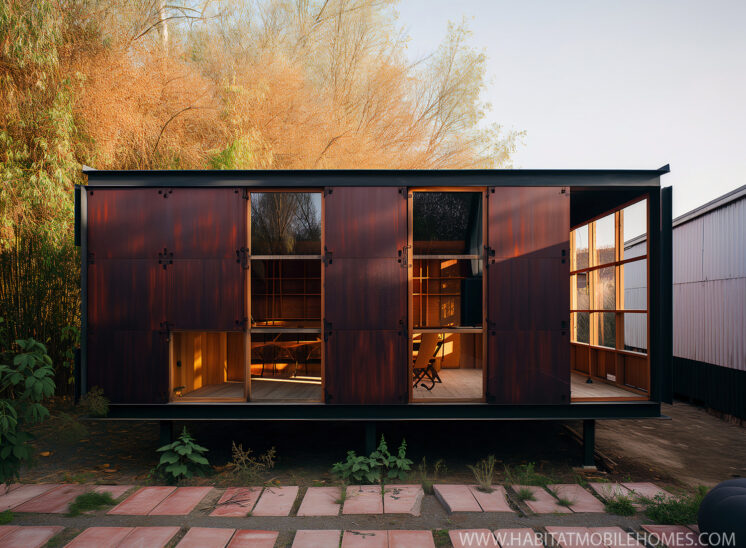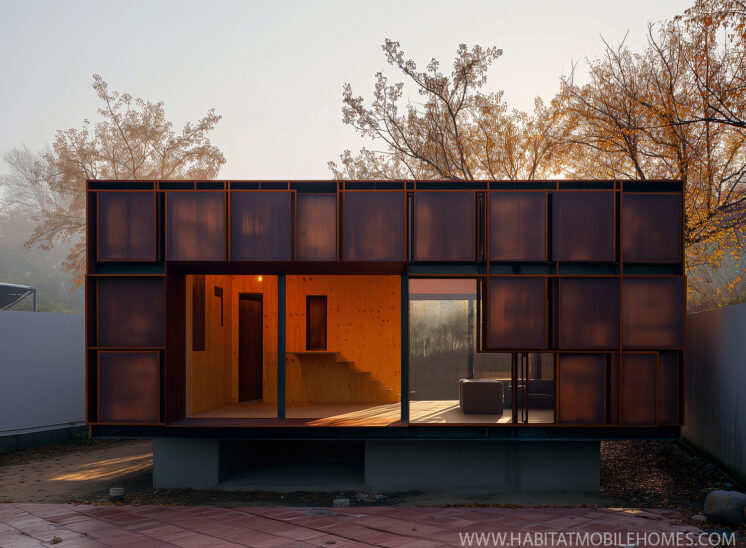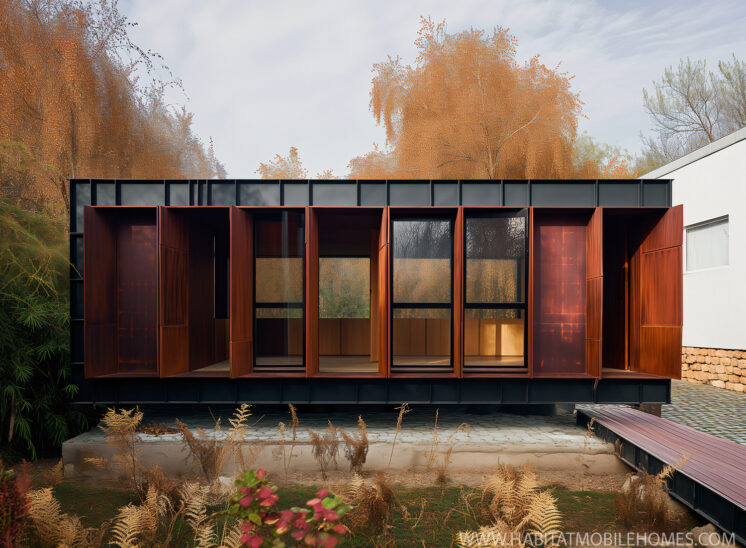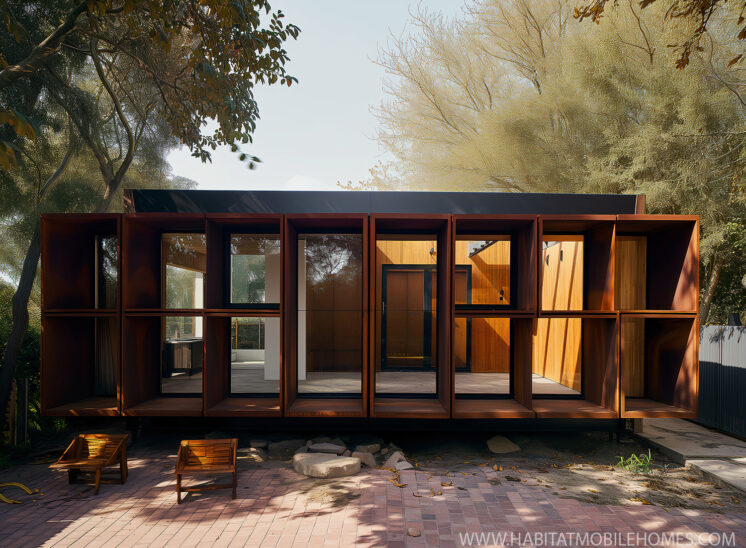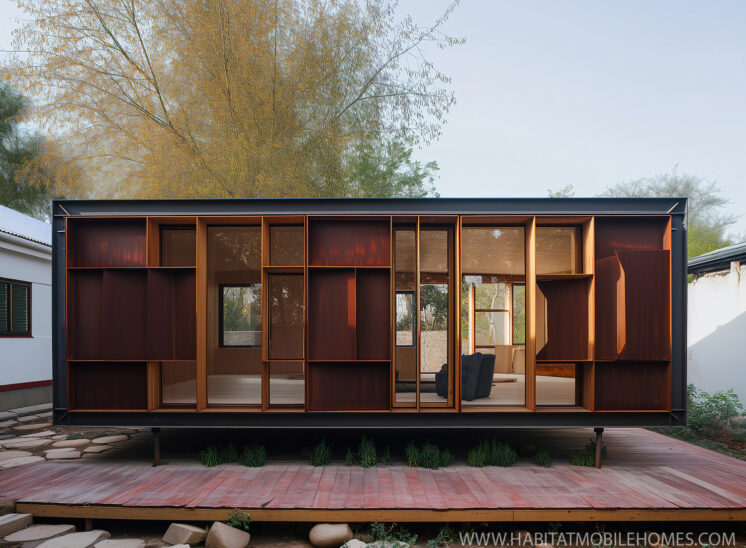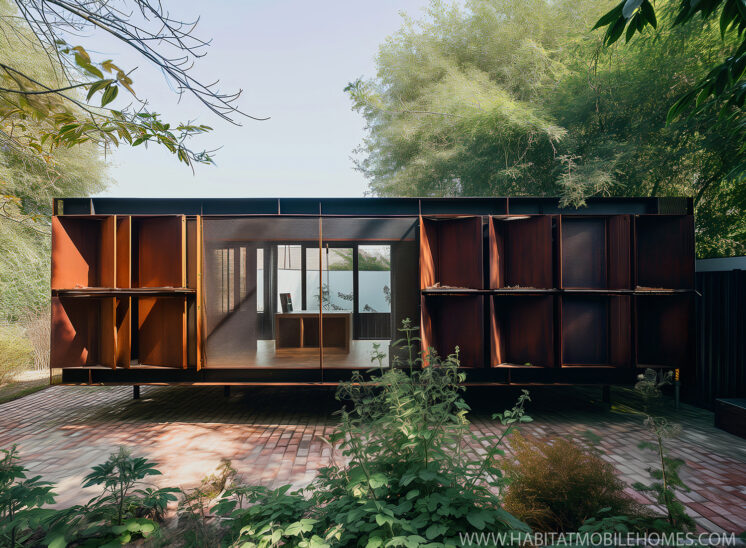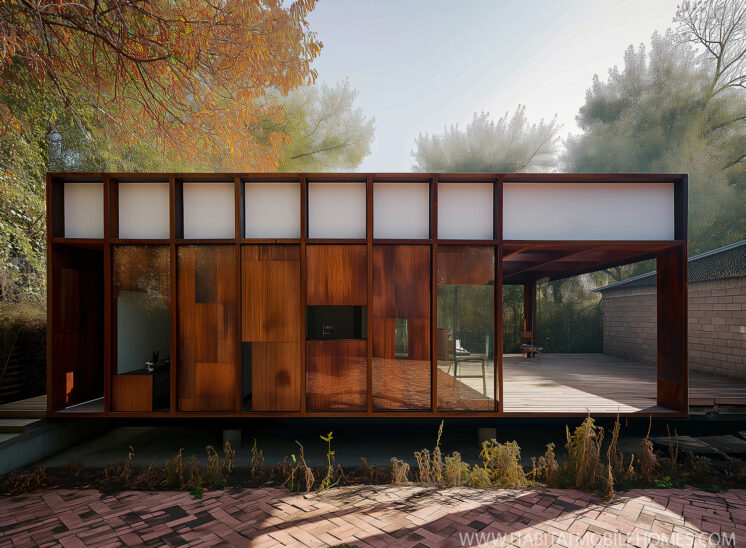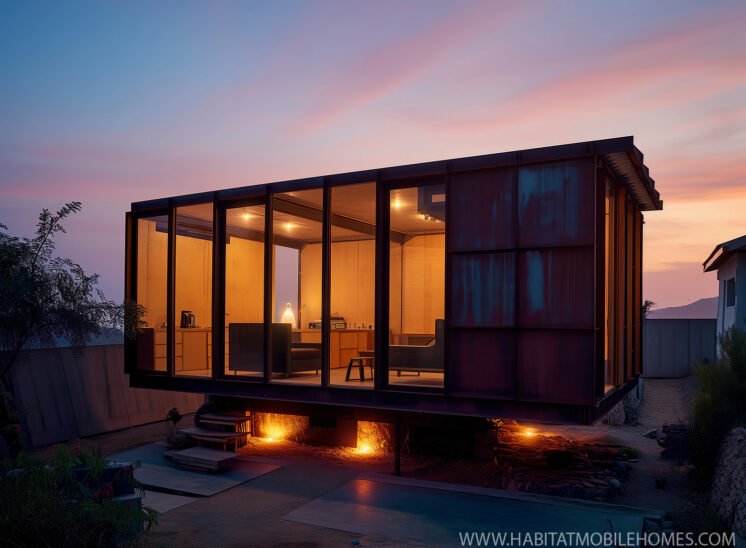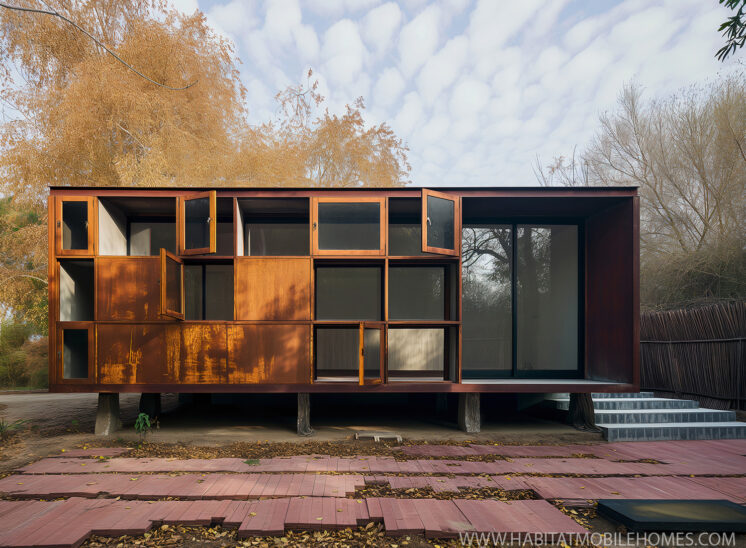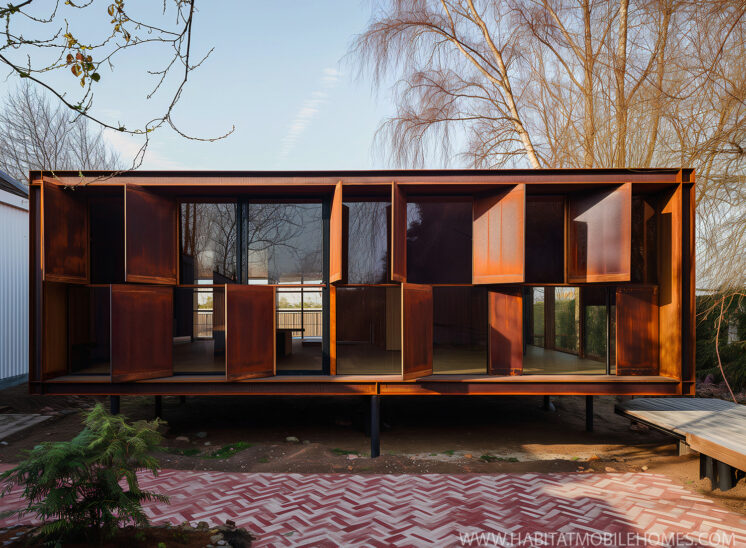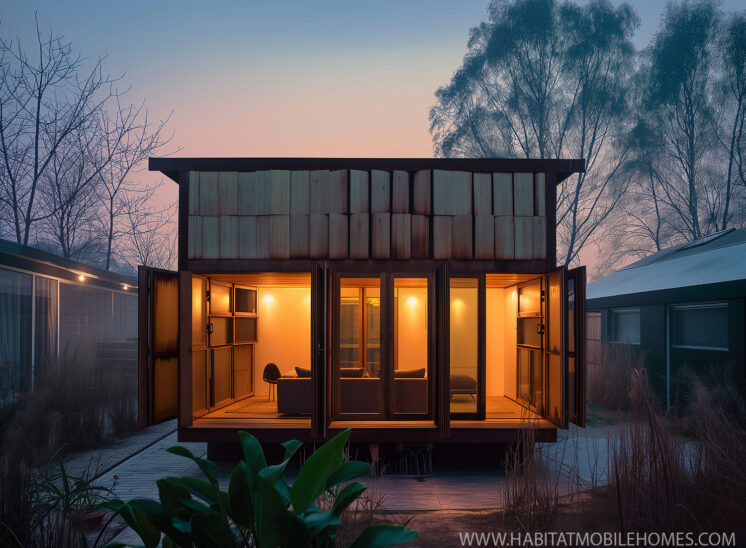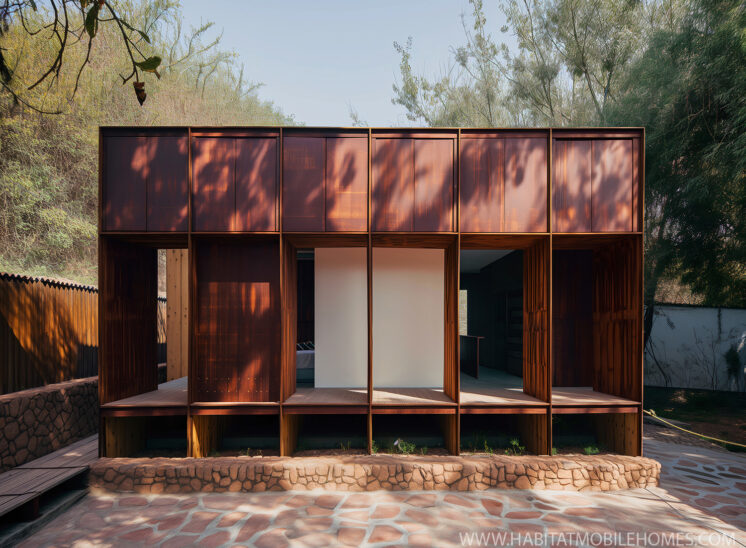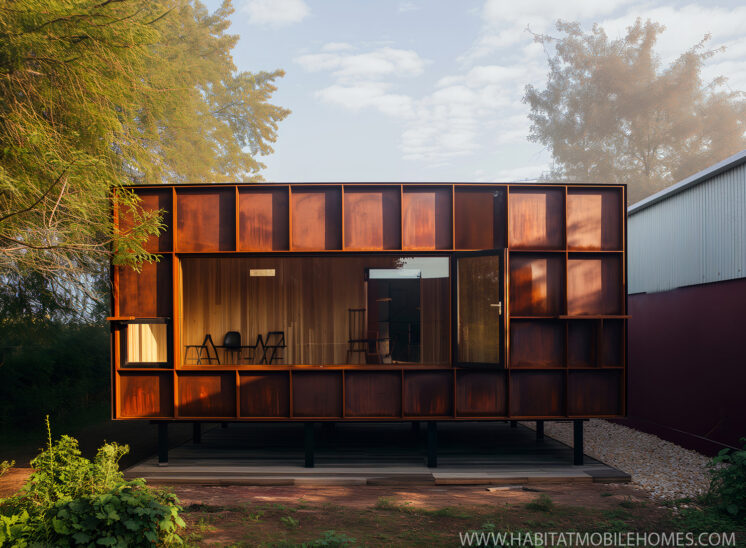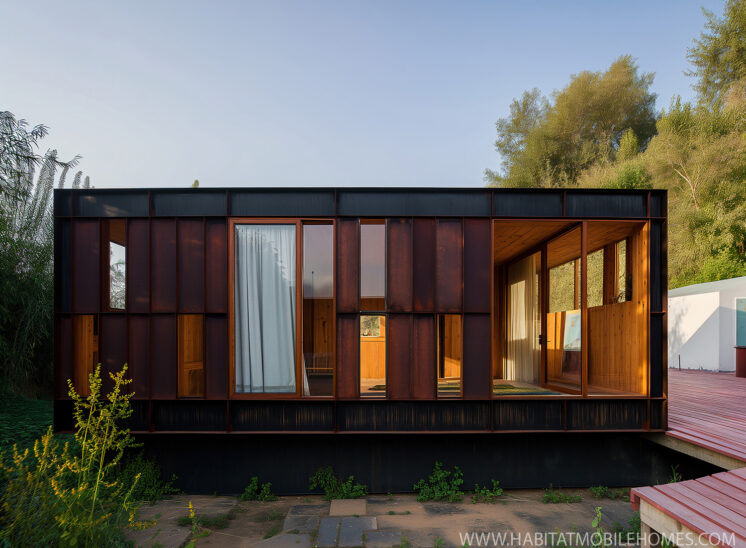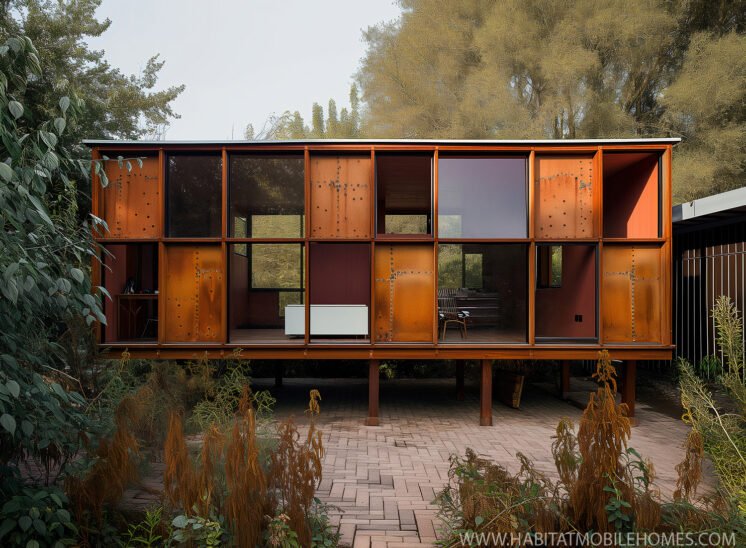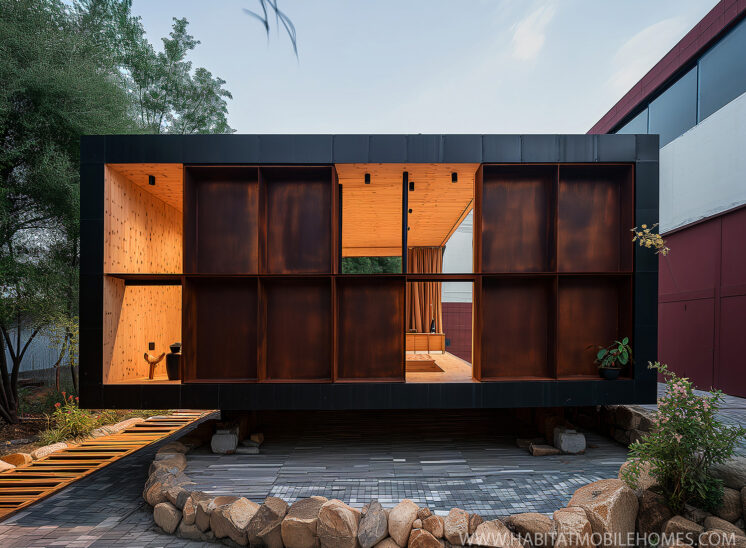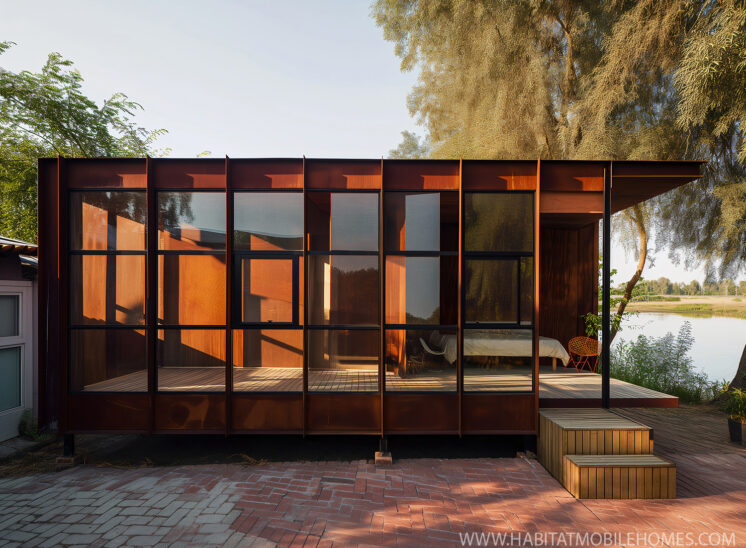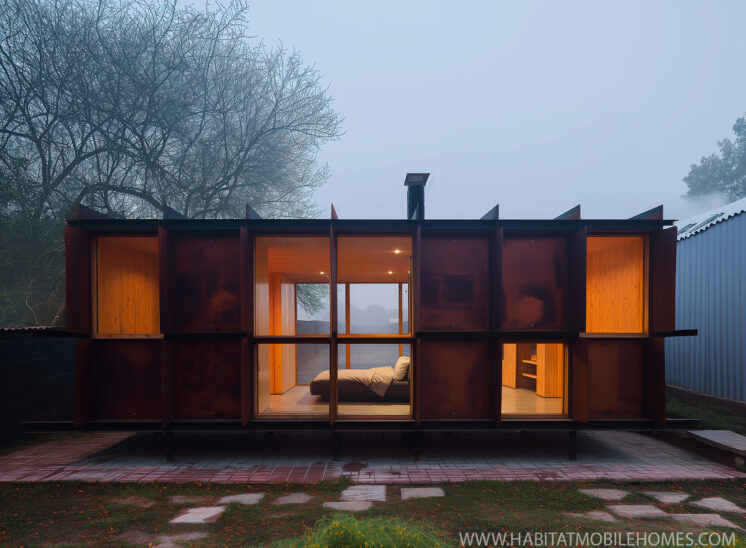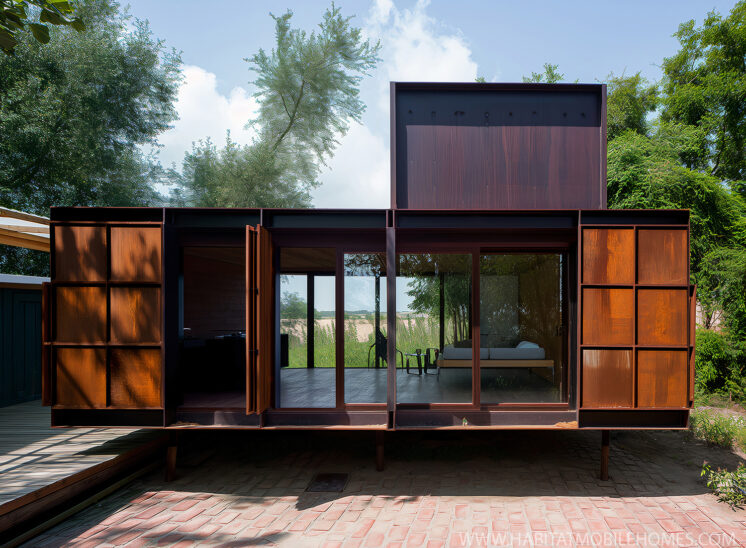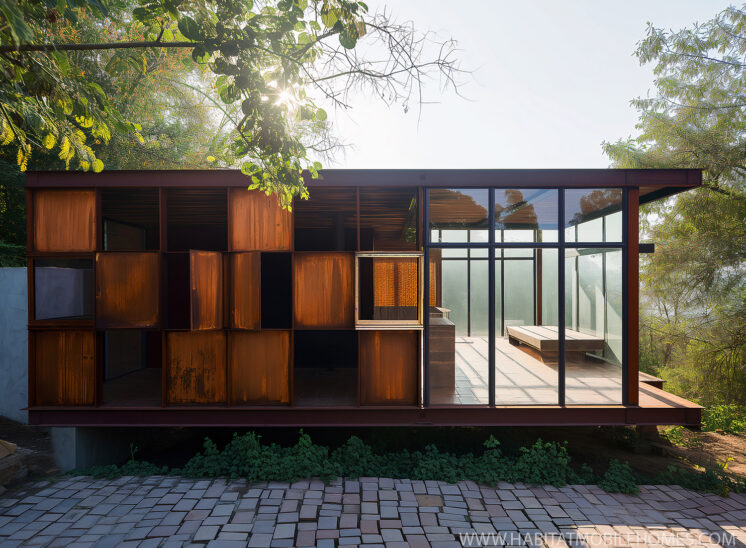Zen and the Art of Modular Living: The Yoshan Cabin Tea Room – A Tranquil Oasis for Modern Lives
Nestled amidst the whispering foliage, the Yoshan Cabin Tea Room emerges as a modern homage to the ancient art of the Japanese tea ceremony—a celebration of tranquility, connection, and the timeless dance of light and shadow. This innovative creation by Habitat Mobile Homes Ltd is more than just a modular home; it is an invitation to embrace the serenity of Asian aesthetics in the heart of England.
As we step across the threshold of these garden studios, the hustle of the outside world falls away, replaced by the hush of a space designed for reflection and repose. The Yoshan Cabin is an embodiment of a philosophy where less is indeed more, and where every element is an ode to nature and minimalism.
The beauty of these twin units lies in their versatility. Meticulously crafted to serve as mobile homes or static caravan kits, they offer a unique blend of mobility and stability. Whether you're looking to add a peaceful retreat to your garden or seeking a sanctuary that moves with you, these cabins provide the perfect solution.
Harmony in Design: The Modern Tea Room Experience
Drawing inspiration from the Japanese 'chashitsu', the architectural vernacular of the Yoshan Cabin is characterised by its rustic patina wood and metal paneling that echoes the warmth of nature. The wooden modules, stained in rich hues, are interlaced with large expanses of glass, ensuring that the barrier between the indoors and the natural world is but a gentle filter.
Within each unit, the space is thoughtfully organised, encouraging both communal gatherings and solitary moments. The minimalistic interiors, devoid of superfluous adornments, are designed to focus the mind and calm the spirit. The play of light through the translucent panels above mirrors the natural rhythm of the day, adding an ethereal quality to the tea ceremonies or quiet contemplation that these spaces invite.
The outdoor integration of the Yoshan Cabin is no less impressive. Decks extend like open palms, ready to hold the dew from the morning mist or the warmth of the afternoon sun. The surrounding greenery is not just a backdrop but a dynamic participant in the living experience. Each season brings with it a new tapestry of colors and textures, effortlessly observed through the cabin's generous windows.
Environmentally conscious and sustainably built, these mobile homes are not just a nod to the future of eco-friendly living but a return to the ancestral wisdom that once taught us to live in harmony with the earth.
Habitat Mobile Homes Ltd has not just constructed a living space but has curated an experience. For those who seek a retreat from the digital cacophony, the Yoshan Cabin offers a sanctuary where time slows down, and life can be sipped slowly, like a cup of matcha tea, frothed to perfection.
As the sun sets, casting long shadows across the wooden deck, one can't help but feel that in the simplicity of the Yoshan Cabin lies the blueprint for a fuller, more mindful way of life. It is here, in the quietude of these modular homes, that we find a rare luxury in our overstimulated times—the luxury of peace.
Unveiling the Charm of Garden Mobile Homes: A Legal Perspective
In the heart of the picturesque English countryside, a quiet revolution is taking root in the gardens of innovative homeowners. The allure of a quaint mobile home nestled among the greenery is not only a testament to the ingenuity of modern living but also a legal ballet danced within the bounds of planning regulations. This is the world of garden mobile homes: compact, versatile, and increasingly popular as both a lifestyle choice and a design statement.
The Appeal of Garden Mobile Homes
Garden mobile homes offer a unique blend of flexibility and functionality. They serve as perfect retreats for those yearning for a private space to read, create, or unwind. For families, they can be an annex for visiting guests or a playroom for children. For the remote worker, they transform into serene home offices, free from the distractions of the main residence.
Legal Foundations
Before one indulges in the dream of a garden mobile home, it is vital to understand the legal framework that governs such installations. Unlike their brick-and-mortar counterparts, mobile homes in gardens exist in a distinct category that enjoys certain exemptions from planning permissions under the Caravan Sites and Control of Development Act 1960 and the Town and Country Planning Act 1990.
Permitted Development Rights
Under the concept of 'permitted development', a mobile home can be situated within the curtilage of a garden provided it is used in a manner incidental to the main dwelling house. This means the mobile home should not be a primary residence or self-contained living accommodation. It should complement the living space of the main house, providing supplementary use such as a studio, office, or leisure room.
Seeking Certainty with Certificates
For those who want peace of mind or are navigating ambiguous situations, obtaining a Certificate of Lawfulness is a prudent step. This certificate is a declaration from the local planning authority that your mobile home is legally placed and used. It is especially beneficial when selling your property or when clarity is required for future developments.
The Practical Guide to Planning Permission for Siting a Yoshan Cabin Tea Room in Your Garden - Understanding the Basics
Q: What is planning permission, and why do I need it for a garden structure?
Planning permission is a legal step required in the UK to determine whether you can proceed with a building project. It is crucial for ensuring that the structure complies with local development plans, including the appearance, use, and impact on the environment and neighbors.
Q: Is planning permission always required for garden buildings?
Not always. Depending on the size, location, and intended use of the garden building, it may fall under 'permitted development' which does not require planning permission. However, certain conditions must be met.
Permitted Development Rights
Q: What are 'permitted development rights' for garden structures?
These are a set of guidelines that allow for certain building works and changes to be carried out without needing to apply for planning permission. They cover aspects like the size, position, and use of the garden building.
Q: How do I know if the Yoshan Cabin falls under permitted development?
For a garden building like the Yoshan Cabin to be classified under permitted development, it generally should not take up more than half the garden space, should be for incidental use (not a separate dwelling), and meet certain height and boundary requirements.
Specific Requirements
Q: What are the height restrictions for garden buildings under permitted development?
Single-story garden buildings must not exceed 2.5 meters in height if within two meters of a boundary, or 4 meters with a dual-pitched roof, or 3 meters for any other roof type if beyond two meters from a boundary.
Q: Are there any restrictions on where I can place the Yoshan Cabin within my garden?
Yes, the building should not be sited forward of the principal elevation of the house. It's also wise to consider access, the impact on neighbours, and whether the building could affect any trees or wildlife.
Applying for Permission
Q: How do I apply for planning permission if needed?
You can apply for planning permission through your local council's planning department. This will typically involve submitting detailed plans of the proposed structure and site, along with an application form and a fee.
Q: What information do I need to provide when applying for planning permission?
You'll need to supply site plans, block plans, elevations of the new build, and possibly a design and access statement. Your local planning authority's website will have a checklist.
Considerations for Approval
Q: On what grounds can planning permission be refused, and can I appeal?
Common grounds for refusal include impact on neighbour's privacy, out of character with the surrounding area, potential traffic issues, and environmental concerns. You can appeal a refusal, but it's a lengthy process.
Q: What should I consider about the Yoshan Cabin to increase the chances of planning approval?
Ensure that the cabin's design is sympathetic to the local area, consider using materials that blend with existing structures, and position it to minimise any impact on neighbours.
After Installation
Q: Once installed, can the use of the Yoshan Cabin change without further permission?
If you want to change the use of the building, for example from a garden room to a living accommodation, you will likely need planning permission, as this constitutes a change of use.
Q: Are there any maintenance or use considerations I should be aware of after installation?
Regular maintenance is necessary to keep the structure in good condition, and you should adhere to the original intended use of the building to avoid any legal issues.
Always check with your local planning authority as early as possible. Consider the long-term intentions for your garden space, and think about consulting with a planning expert or architect for personalized advice.
Embracing Flexibility: The Legality of Siting a Mobile Home in Your Garden
The concept of a mobile home in a garden evokes images of freedom, adaptability, and the ingenious use of space. With the rise of remote working and the need for additional living quarters, homeowners are increasingly turning to mobile homes as a versatile solution. But what are the legal considerations of such an undertaking? This article delves into the common questions surrounding the legality of siting a mobile home in your garden.
Navigating the Legal Landscape
Q: Can I legally place a mobile home in my garden without planning permission?
Yes, under certain conditions. A mobile home can be placed within the garden of your property and used for purposes incidental to the main dwelling without planning permission. This means it can serve as an office, playroom, or an extension of your living space.
Q: What defines a 'mobile home' in the context of garden placement?
Legally, a 'mobile home' is defined as a structure that is transportable, designed for human habitation, and not in use as a permanent dwelling. It must be capable of being moved to another place as a whole or in sections.
Q: What if I want to use the mobile home as a separate dwelling?
If the mobile home is intended to be used as a separate dwelling, you must seek planning permission, as this changes the 'use' of the land from garden to residential.
Certificates of Lawfulness
Q: What is a Certificate of Lawfulness, and when do I need one?
A Certificate of Lawfulness is a legal document issued by the local planning authority that certifies the use of a building or land as lawful. You may need one if there are any ambiguities or potential challenges regarding the lawfulness of the mobile home's placement and use.
Q: How do I apply for a Certificate of Lawfulness for a mobile home?
You apply to your local council, providing detailed plans of the mobile home, evidence of its existence, and its use over time. The evidence must demonstrate that the mobile home has been used lawfully for a minimum period—typically four years.
Compliance and Considerations
Q: Are there any restrictions on the mobile home's size or appearance?
While not explicitly limited by size, the mobile home must maintain the appearance of 'mobility' and not present itself as a fixed structure. This often means retaining wheels or chassis even if it is not regularly moved.
Q: Does the type of garden affect my ability to place a mobile home?
The principle remains the same whether you have a residential garden or a larger piece of land. However, larger gardens or lands in rural areas may face different scrutiny based on landscape impact and other environmental considerations.
Practical Insights
Q: Can I connect utilities to my mobile home?
Yes, you can connect utilities such as water, gas, and electricity to a mobile home. These amenities, however, should be connected to the main house's supply to emphasize the mobile home's status as ancillary to the dwelling.
Q: What about the long-term implications of having a mobile home in my garden?
A mobile home can be an asset, offering flexibility as your needs change. However, if not handled properly, it could also be a liability, especially if you do not adhere to the lawful uses and end up facing enforcement action.
Final Reflections
Q: Any parting advice for prospective mobile home gardeners?
Always approach your local planning authority for advice. Be clear about your intentions, and ensure compliance with all relevant regulations. A mobile home in your garden can be a delightful addition or a practical solution to space needs, as long as it is done legally and thoughtfully.
In summary, while placing a mobile home in your garden can be a straightforward affair under certain conditions, it is not without its legal intricacies. Homeowners should navigate this path with care, armed with the right information and, when necessary, the appropriate legal support.

